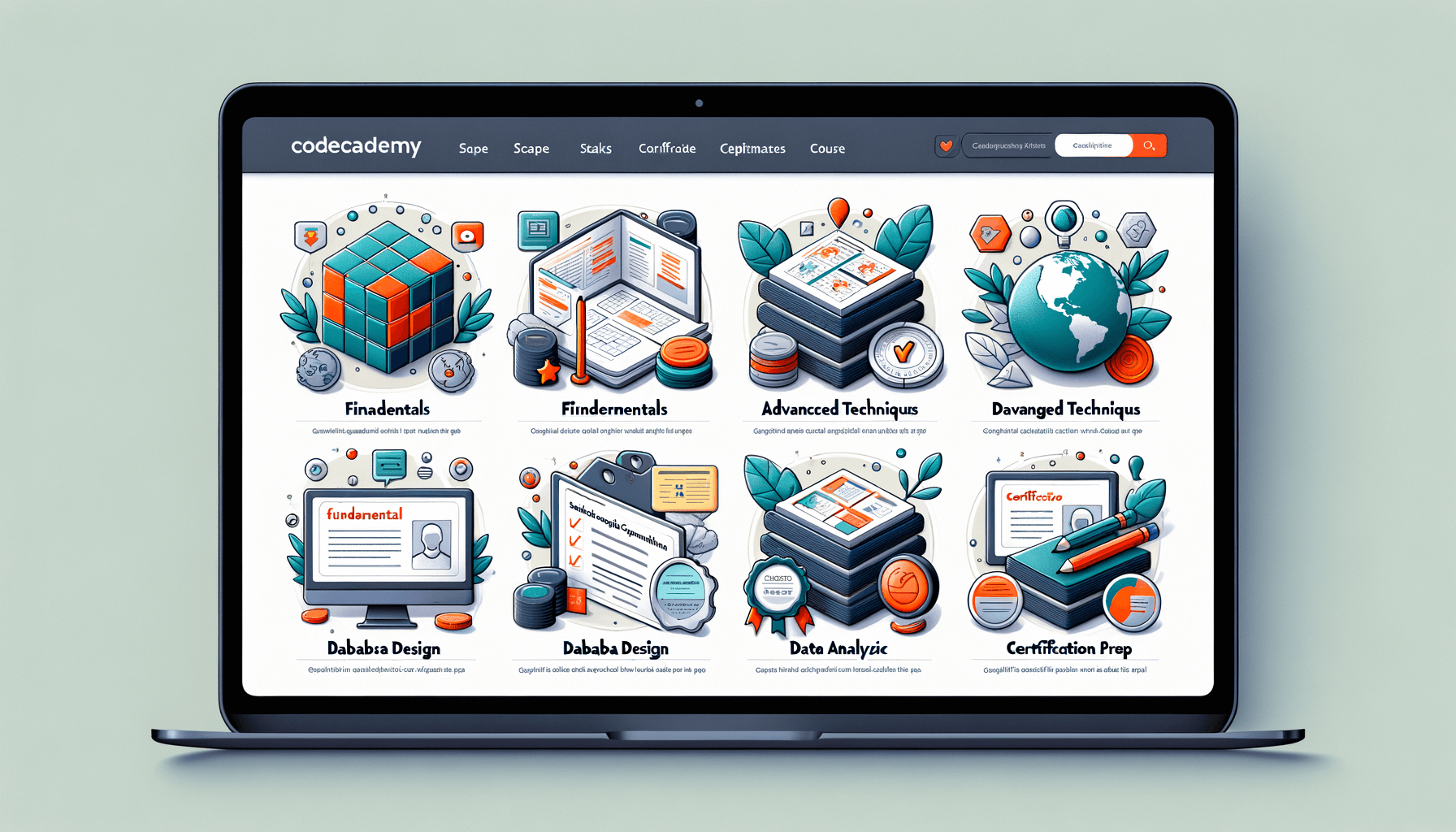A big variety of articles and resources

Is it worth learning SQL in 2021-2022?
 Sia Author and Instructor
Learn SQL
Sia Author and Instructor
Learn SQL
14 minute read
As we move through 2021 and into 2022, many people wonder if learning SQL is still worth it. SQL, or Structured Query Language, has been around for decades, but is it still useful in today's tech world? This article will help you understand the importance of SQL, compare it with NoSQL, and look at its role in big data, cloud computing, and more. By the end, you'll know if learning SQL is the right choice for you.
Key Takeaways
- SQL remains a key skill in modern data management and decision-making.
- Both SQL and NoSQL have their own strengths and are best suited for different use cases.
- SQL databases can handle big data and integrate well with other big data technologies.
- Job opportunities for SQL professionals are plentiful and well-paying.
- There are many resources available to help you learn SQL, from online courses to practical projects.
The Relevance of SQL in Modern Data Management
In the realm of modern data management, SQL holds a significant position. Understanding the historical context of SQL provides insights into its evolution over time. Current trends in data management highlight the continued importance of SQL in organizing and retrieving data efficiently. SQL plays a crucial role in enabling data-driven decision making, empowering organizations to make informed choices based on data analysis.
SQL vs. NoSQL: A Comparative Analysis
Fundamental Differences
When comparing SQL and NoSQL, it's important to understand their core differences. SQL databases are relational, meaning they store data in tables with rows and columns. This structure makes it easy to query and manage data. On the other hand, NoSQL databases are non-relational and can store data in various formats like documents, key-value pairs, and graphs. This flexibility allows NoSQL to handle unstructured data more efficiently.
Use Cases for SQL
SQL is ideal for applications that require complex queries and transactions. It's commonly used in industries like finance, where data integrity and consistency are crucial. For example, banking systems rely on SQL databases to manage customer accounts and transactions. Additionally, SQL is a good fit for applications that need to generate detailed reports and analytics.
Use Cases for NoSQL
NoSQL shines in scenarios where scalability and flexibility are more important than strict data consistency. It's often used in big data applications, real-time web apps, and content management systems. For instance, social media platforms use NoSQL databases to store user-generated content and handle high traffic loads. NoSQL is also popular in e-commerce for managing product catalogs and customer data.
In summary, both SQL and NoSQL have their strengths and weaknesses. The choice between them depends on the specific needs of your application. While SQL offers robust data management and querying capabilities, NoSQL provides the flexibility and scalability needed for modern, dynamic applications.
SQL in the Era of Big Data
Scalability of SQL Databases
In the age of big data, the ability to scale databases is crucial. SQL databases have evolved to handle large volumes of data efficiently. Modern SQL databases can now scale both vertically and horizontally, making them suitable for various applications. Vertical scaling involves adding more power to an existing machine, while horizontal scaling means adding more machines to handle the load.
Integration with Big Data Technologies
SQL databases seamlessly integrate with big data technologies like Hadoop and Spark. This integration allows us to leverage the strengths of both SQL and big data platforms. For instance, we can use SQL for structured data queries and Hadoop for unstructured data processing. This combination provides a powerful toolset for data analysis and management.
Performance Considerations
When dealing with big data, performance is a key concern. SQL databases have made significant strides in optimizing query performance. Techniques such as indexing, partitioning, and in-memory processing help improve the speed and efficiency of data retrieval. It's important to choose the right database and configuration to meet specific performance requirements.
In the context of big data, SQL remains a vital tool for data management and analysis. Its ability to scale and integrate with other technologies makes it indispensable in modern data ecosystems.
Career Opportunities for SQL Professionals
Demand in the Job Market
The demand for SQL professionals remains strong in today's job market. Many companies need experts who can manage and analyze data. SQL skills are essential for roles like data analyst and database administrator. These roles are crucial for making data-driven decisions.
Common Roles and Responsibilities
SQL professionals often find themselves in various roles, each with unique responsibilities. Some common positions include:
- Data Analyst: Uses SQL to extract and analyze data to help businesses make informed decisions.
- Database Administrator: Manages and maintains database systems to ensure they run smoothly.
- Data Engineer: Designs and builds systems for collecting, storing, and analyzing data.
Salary Expectations
Salaries for SQL professionals can vary based on experience and location. However, they generally offer competitive pay. Here's a simple table to show average salaries:
| Role | Average Salary |
|---|---|
| Data Analyst | $65,000 |
| Database Administrator | $75,000 |
| Data Engineer | $90,000 |
Learning SQL can open doors to many career paths. It provides essential skills for data analysis and career advancement in various roles.
Learning SQL: Resources and Strategies
Online Courses and Tutorials
To jumpstart SQL, there are many free introductory lessons available online. These courses often provide comprehensive SQL training with hands-on projects, personalized support, and industry insights. Some platforms even feature instructors with over 25 years of experience. It's a good idea to subscribe to newsletters to stay updated and compare with other platforms to find the best fit for your learning style.
Books and Publications
Books are a great way to dive deep into SQL. Many publications offer step-by-step guides and practical examples. Look for books that include exercises and real-world scenarios to practice what you've learned. Libraries and online bookstores are excellent places to find these resources.
Practical Projects and Exercises
One of the best ways to learn SQL is by doing. Practical projects and exercises help reinforce what you've learned in courses and books. Try to work on real-world problems or datasets. This hands-on approach will make the concepts stick and give you a better understanding of how SQL is used in various industries.
Learning SQL can be challenging, but with the right resources and strategies, anyone can master it. Start with the basics and gradually move to more complex topics. Practice regularly and seek help from online communities if you get stuck.
SQL in Cloud Computing
Cloud-Based SQL Databases
In recent years, cloud computing has revolutionized how we store and manage data. Cloud-based SQL databases offer flexibility and scalability that traditional on-premises databases often lack. These databases can be easily scaled up or down based on demand, making them ideal for businesses of all sizes. One of the key advantages of cloud-based SQL databases is their ability to handle large volumes of data without compromising performance.
Benefits of SQL in Cloud Environments
Using SQL in cloud environments brings several benefits. First, it allows for seamless integration with other cloud services, enhancing overall efficiency. Second, cloud-based SQL databases often come with built-in security features, ensuring data protection. Lastly, they offer cost-effective solutions by eliminating the need for physical hardware and maintenance.
Challenges and Limitations
Despite the numerous benefits, there are challenges and limitations to using SQL in the cloud. Network latency can be a significant issue, affecting the speed of data retrieval and processing. Additionally, data migration to the cloud can be complex and time-consuming. It's also important to consider the potential for vendor lock-in, which can limit flexibility and increase costs over time.
While cloud-based SQL databases offer many advantages, it's crucial to weigh these against the potential challenges to make an informed decision.
Security and Compliance in SQL Databases
Data Protection Mechanisms
In today's digital age, protecting data is more important than ever. SQL databases come with various security features to keep data safe. These include encryption, access controls, and regular audits. Encryption ensures that data is unreadable to unauthorized users. Access controls help in defining who can view or modify the data. Regular audits help in identifying any unusual activities.
Regulatory Compliance
SQL databases must comply with various regulations to ensure data safety. These regulations include GDPR, HIPAA, and CCPA. Compliance means following rules to protect personal information. It also involves regular checks and updates to meet the latest standards. This is crucial for businesses to avoid fines and maintain trust.
Best Practices for Secure SQL
To keep SQL databases secure, we should follow some best practices. First, always use strong passwords and change them regularly. Second, limit access to the database to only those who need it. Third, regularly update the database software to fix any security issues. Lastly, always back up your data to prevent loss in case of a breach.
In the world of data management, security and compliance are not just optional; they are essential. Following best practices and staying updated with regulations can help protect valuable information.
SQL in Business Intelligence and Analytics
SQL for Data Analysis
In the realm of data analysis, SQL stands as a cornerstone. It allows us to query vast datasets efficiently, extracting meaningful insights that drive business decisions. SQL's ability to handle complex queries makes it indispensable for analysts who need to sift through large volumes of data quickly.
Integration with BI Tools
SQL seamlessly integrates with various Business Intelligence (BI) tools, enhancing their functionality. Tools like Tableau, Power BI, and Looker rely on SQL to fetch and manipulate data, providing users with dynamic and interactive dashboards. This integration ensures that data remains consistent and up-to-date across all platforms.
Case Studies and Applications
Numerous case studies highlight the effectiveness of SQL in BI. For instance, a retail company used SQL to analyze customer purchase patterns, leading to a 20% increase in sales. Another example is a healthcare provider that utilized SQL to streamline patient data management, improving service delivery and patient satisfaction.
SQL's role in Business Intelligence is not just about querying data; it's about transforming raw data into actionable insights that can drive strategic decisions.
The Future of SQL: Emerging Trends and Technologies
Advancements in SQL Standards
SQL has been around for decades, but it continues to evolve. New standards are regularly introduced to keep up with the changing needs of data management. These updates often include new features and improvements that make SQL more powerful and easier to use. Keeping up with these advancements is crucial for anyone working with databases.
Impact of Machine Learning and AI
Machine learning and AI are transforming many fields, and SQL is no exception. Integrating these technologies with SQL can lead to more efficient data analysis and better decision-making. For example, some modern SQL databases now include built-in machine learning capabilities, allowing users to run complex algorithms directly within the database.
Predictions for SQL's Evolution
Looking ahead, we can expect SQL to continue adapting to new challenges and opportunities. This might include better support for big data, more seamless integration with cloud services, and enhanced security features. As the data landscape evolves, so too will SQL, ensuring it remains a vital tool for data management.
From zero to PostgreSQL Junior DBA: Complete Database Administration Course. Gain practical SQL skills with real-world problems, hands-on projects, and expert-led training. Instructor with 25 years experience. Course requires effort for success.
Community and Support for SQL Learners
Online Forums and Communities
Engaging with online forums and communities can be incredibly beneficial for SQL learners. These platforms offer a space to ask questions, share knowledge, and connect with others who are also learning or are experienced in SQL. Participating in these communities can accelerate your learning process and provide support when you encounter challenges.
Professional Organizations
Joining professional organizations related to SQL and data management can open up numerous opportunities. These organizations often host events, webinars, and workshops that can enhance your skills and knowledge. They also provide a platform to network with industry professionals, which can be invaluable for career growth.
Mentorship and Networking Opportunities
Finding a mentor who has extensive experience in SQL can be a game-changer. A mentor can offer personalized guidance, help you navigate complex topics, and provide insights into the industry. Additionally, networking with peers and professionals can lead to job opportunities and collaborations. Building a strong network is essential for long-term success in the field of SQL.
From zero to MySQL Junior DBA: Complete Database Administration Course. Practical SQL training with real-world problems. Instructor with 25 years experience. Course leads to job opportunities. Subscribe for newsletter. Compare with other platforms. Free SQL course available.
Challenges in Learning and Mastering SQL
Common Learning Obstacles
When we start learning SQL, we often face several hurdles. One of the main challenges is understanding the syntax and structure of SQL queries. Unlike everyday language, SQL has a specific way of writing commands that can be tricky to grasp at first. Another common issue is dealing with complex joins and subqueries, which require a deeper understanding of how databases are structured and how data is related.
Advanced SQL Concepts
As we move beyond the basics, we encounter more advanced topics that can be difficult to master. These include window functions, recursive queries, and performance tuning. Each of these areas requires a solid foundation in SQL and a lot of practice to understand fully. It's not uncommon to feel overwhelmed when first encountering these advanced concepts.
Tips for Overcoming Challenges
To overcome these challenges, we can follow a few strategies:
- Practice Regularly: The more we practice writing SQL queries, the more familiar we become with the syntax and structure.
- Use Online Resources: There are many online tutorials, forums, and courses that can help us understand difficult concepts.
- Work on Real Projects: Applying SQL to real-world problems can help solidify our understanding and make learning more engaging.
- Seek Help When Needed: Don't hesitate to ask for help from more experienced SQL users or join study groups.
Learning SQL can be challenging, but with persistence and the right resources, we can overcome these obstacles and become proficient in managing and querying databases.
Learning SQL can be tough, especially when you're just starting out. From understanding complex queries to managing databases, the challenges can seem endless. But don't worry, we're here to help! Visit our website to explore our courses and get the support you need to become a SQL pro. Sign up today and start your journey with us!
Conclusion
In summary, learning SQL in 2021-2022 is a valuable skill for anyone interested in data management and analysis. SQL is a powerful tool that helps you interact with databases, making it easier to retrieve and manipulate data. As businesses continue to rely on data-driven decisions, the demand for SQL skills remains strong. Whether you are a student, a professional, or someone looking to switch careers, mastering SQL can open up many opportunities. It is a versatile and widely-used language that can enhance your career prospects and make you more competitive in the job market. Therefore, investing time in learning SQL is definitely worth it.
Frequently Asked Questions
What is SQL?
SQL stands for Structured Query Language. It is a language used to communicate with databases and manage data.
Is SQL still useful in 2021-2022?
Yes, SQL is still very useful. Many companies use it to manage and analyze their data. It is a valuable skill for many jobs.
What is the difference between SQL and NoSQL?
SQL databases use tables to store data, while NoSQL databases can use different ways to store data like documents or graphs. They are used for different types of tasks.
Can SQL handle big data?
Yes, SQL can handle big data, especially when used with big data technologies. Some SQL databases are designed to scale and manage large amounts of data.
Are there good career opportunities for SQL professionals?
Yes, there are many job opportunities for people who know SQL. Companies need SQL experts for roles like data analyst, database administrator, and more.
How can I learn SQL?
You can learn SQL through online courses, books, and practice projects. There are many free and paid resources available.
What are the benefits of using SQL in cloud computing?
Using SQL in cloud computing can be very beneficial. Cloud-based SQL databases are easy to scale and manage, and they can be more cost-effective.
Is SQL secure?
SQL can be very secure if you follow best practices. There are many ways to protect data in SQL databases to keep it safe from unauthorized access.
Related Articles

Harnessing SQL for Machine Learning: A Comprehensive Guide
11 minute read

How Fast Can You Learn SQL? Tips for Rapid Mastery
8 minute read

Master SQL with Codecademy's Comprehensive Course
10 minute read




